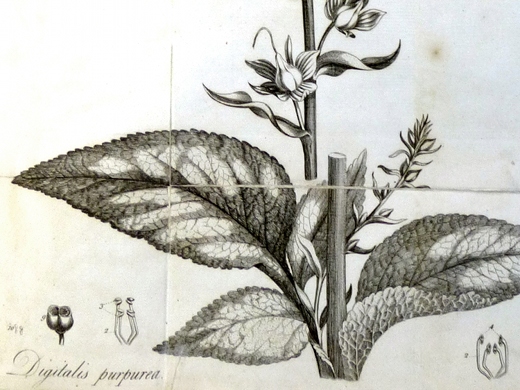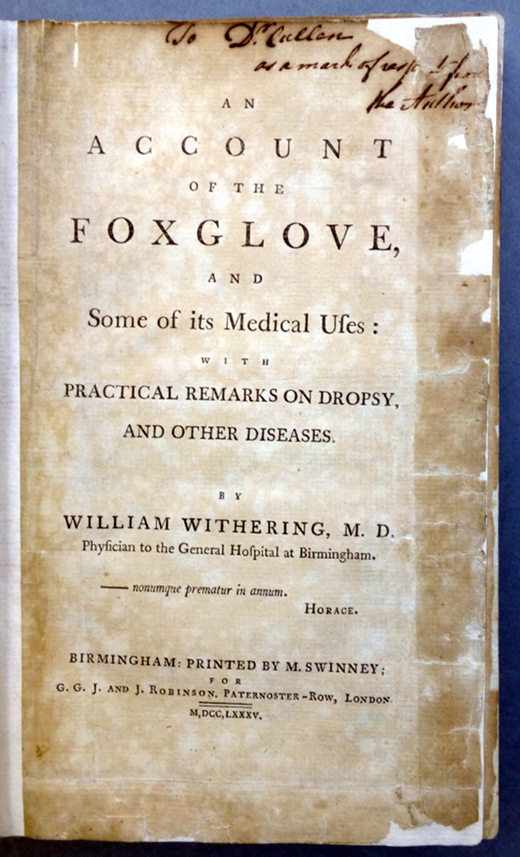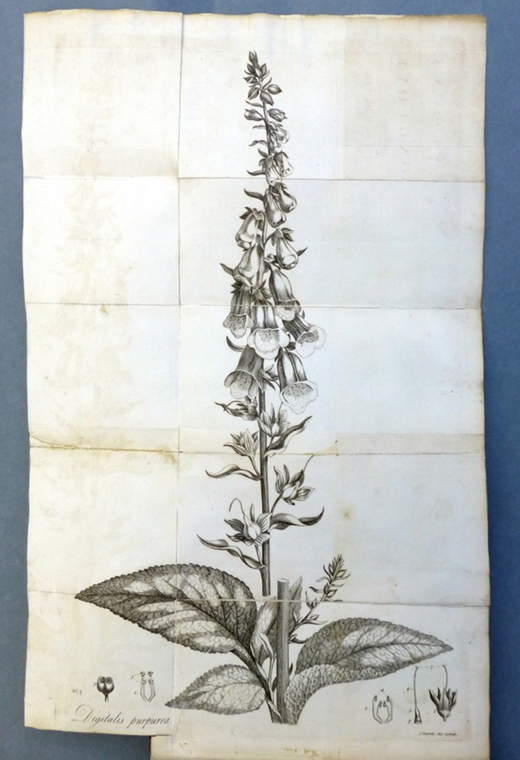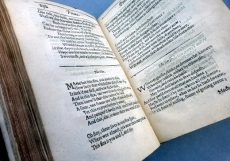- About
- Visiting
- What’s On
- Venue hire
- Catalogues
- Collections
- 101 Treasures of Chetham’s
- Digital Resources
- The Flowers of Histories
- A Book of Hours from France
- The Manchester Scrapbook
- Thomas Barritt of Manchester
- Art Treasures Examiner of 1857
- Manchester Association for Constitutional Order
- The North Western Museum of Science and Industry: Some Reminiscences by Richard Hills
- Criminal Manchester
- The Cup of Destiny
- Athenaeum Souvenir
- Middle English Manuscripts
- Manchester and Liverpool of Today
- Hollingworth’s Mancuniensis
- Memoir of Cecil Wray
- William Seward’s Diary
- The Anti-Monopolist
- Fishwick’s History of Rochdale
- Knyvett’s Defence of this Realm
- Tractatus de Nigromantia
- Axon Ballads
- Printed Books & Ephemera
- Archives & Manuscripts
- Prints and Photographs
- Blog
- Support us
Withering’s Account of the Foxglove
Printed in Birmingham by M. Swinney, 1785

William Withering (1741-1799) was an English botanist, geologist, chemist and physician. In 1776, he published The botanical arrangement of all the vegetables naturally growing in Great Britain, an early and influential British Flora, the first in English based on the then new Linnaean taxonomy. His chief work however, indeed his chief contribution to science, is his An Account of the Foxglove, and some of its medical uses (Birmingham: printed by M. Swinney for G. G. J. & J. Robinson, London, 1785).
Withering, the son of a surgeon, was apprenticed to his father and later trained as a doctor at Edinburgh University. He held the position of Chief Physician at Birmingham General Hospital for thirteen years, and began experimenting with the medicinal properties of digitalis, a practice he had first learned from a folk herbalist in Shropshire.

After some nine years of research, Withering published his account on the effects and toxicity of digitalis, documenting numerous cases where he had employed the drug, and describing the best and safest ways of using it.
Withering died in 1799 and is buried at Edgbaston Old Church in Birmingham, where his memorial stone includes carvings of foxgloves. He is remembered as a pioneer of the application of scientific method in medicine, in particular for his research into heart disease.

The book contains a large folded engraved plate made by the artist James Sowerby (click to enlarge). The Library’s copy of Withering’s Account of the foxglove was presented by the author to one of his teachers, William Cullen, Professor at the Edinburgh Medical School, which at the time was the leading centre of medical education in the English-speaking world.
In addition to An Account of the foxglove the Library has four other works by Withering, including his Botanical arrangement of all the vegetables naturally growing in Great Britain (1776), An arrangement of British plants; : according to the latest improvements of the Linnaean system. To which is prefixed, An easy introduction to the study of botany (1796), An account of the scarlet fever and sore throat, or scarlatina anginosa: particularly as it appeared at Birmingham in the year 1778 (1779), and his Edinburgh University Medical dissertation of 1776 Dissertatio medica inauguralis, de angina gangrænosa.


